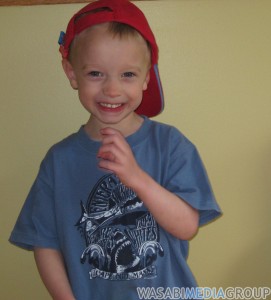 My son now is entering the discovery years–the age when children start to develop the ability to think things through and learn things by themselves. At this age children begin to understand cause and effect and learn to use past experiences to arrive at judgments. My wife and I have noticed that lately our son has learned to reason with us. A few months ago he used to believe everything we told him immediately, but now he asks questions first before agreeing with us on things. Just like what happened the other night when we informed him that it was time for bed and his time playing with his favorite computer game was up. He said, “What will I do in bed? I am not yet sleepy.”
My son now is entering the discovery years–the age when children start to develop the ability to think things through and learn things by themselves. At this age children begin to understand cause and effect and learn to use past experiences to arrive at judgments. My wife and I have noticed that lately our son has learned to reason with us. A few months ago he used to believe everything we told him immediately, but now he asks questions first before agreeing with us on things. Just like what happened the other night when we informed him that it was time for bed and his time playing with his favorite computer game was up. He said, “What will I do in bed? I am not yet sleepy.”
We do not exactly know what to feel every time he reasons this way, it’s a mixed feeling of amusement and alarm. We are amused that our four-year-old has learned to reason, but at the same time we also are alarmed. I could not remember reasoning that way with my parent when I was four.
Of course, the key to making children understand the things that we teach them is in giving reasons, but it is not always easy. A few days ago my son suddenly got interested in knowing why there is day and night. This seemed easy enough to explain, but when you are trying to explain to a four year old the workings of the solar system, you realize that it is not that easy. While I was trying to explain in the simplest possible way the reason why there is night and day, more questions rolled out from my son’s lips, his endless whys probed deeper and deeper.
I am still a novice at handling questions from a child in his discovery years, but here are some thoughts that I believe could help parents who are in the same boat as I am now:
- Parents need to understand that young children have the need to know why, and it is the duty of the parents to supply the answers.
- Children have the need to understand why things happen; parents must not skirt the “difficult” portions of the thing being explained.
- The discovery years are a good time to increase our children’s knowledge.










